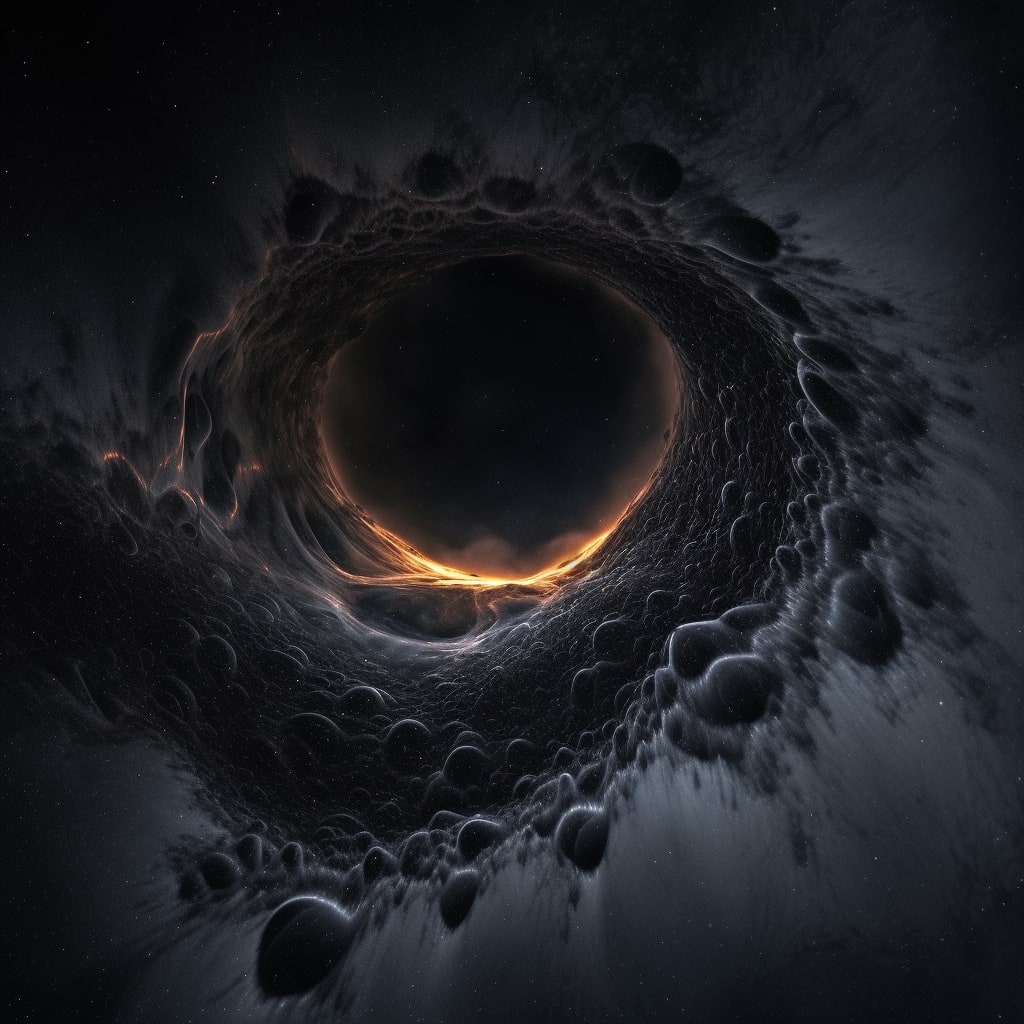The Devastating Consequences of a Coin-Sized Black Hole Appearing Near You
Exploring the Phenomenon and Its Catastrophic Impact on Earth and the Solar System

What would happen if a black hole the size of a coin suddenly materialized near you? The short answer is, you would die. However, the long answer is more complex and depends on the black hole's properties – whether it has the mass of a coin or the diameter of a coin.
Let's first consider a scenario where a US nickel, with a mass of approximately 5 grams, collapses into a black hole. This black hole would have a radius of about 10^−30 meters, an unfathomably small size compared to a hydrogen atom, which measures around 10^−11 meters. Consequently, this black hole would be as small in relation to an atom as an atom is to the Sun.
A black hole of such minuscule proportions would have an incredibly short lifespan due to decay by Hawking radiation. Within 10^−23 seconds, it would radiate away its entire mass. The black hole's 5 grams of mass would convert into 450 terajoules of energy, resulting in an explosion approximately three times more powerful than the atomic bombs dropped on Hiroshima and Nagasaki combined. In this case, both you and the coin would be annihilated.
On the other hand, if the black hole had the diameter of a common coin, it would be significantly more massive. A nickel-sized black hole would be slightly more massive than Earth, possessing a surface gravity a billion billion times greater than our planet. The tidal forces exerted on you would be so intense that they would tear your individual cells apart, and the black hole would consume you before you even realized what was happening.
Despite the laws of gravity remaining constant, the gravitational phenomenon you would experience around such a dense object would be vastly different. Gravity weakens the farther you are from an object, but its range of attraction extends across the entire observable universe. Currently on Earth, your head and toes are roughly equidistant from the planet's center. However, if you stood on a nickel-sized black hole, your feet would be hundreds of times closer to the center. Consequently, the gravitational force on your feet would be tens of thousands of times stronger than the force on your head, tearing you into billions of pieces.
The devastation wouldn't stop with you. The black hole would become the dominant gravitational entity within the Earth-Moon-Black-Hole-of-Death system. Contrary to popular belief, the black hole would not sink towards Earth's center to consume it from within. Instead, Earth would move towards the black hole, appearing to orbit it while losing large amounts of mass with each pass.
As Earth is gradually devoured from the inside, it collapses into a scattered disk of hot rock, tightly orbiting the black hole. The black hole's mass doubles by the time it finishes feeding. Meanwhile, the Moon's orbit becomes highly elliptical, and the Solar System experiences terrifying repercussions. The black hole's tidal forces could potentially disrupt near-Earth asteroids and even parts of the asteroid belt, resulting in rocks hurtling chaotically throughout the Solar System. Bombardment and impacts may become a regular occurrence for millions of years.
Although the planets would experience some disturbances, their orbits would remain largely unaffected. The black hole, once called Earth, would continue orbiting the Sun in Earth's place. In this scenario, your fate remains the same: you would die, and the consequences for our planet and the entire Solar System would be catastrophic.
The consequences of a coin-sized black hole appearing near you would not only be devastating for you and the Earth but would also have far-reaching effects on the entire Solar System. It's essential to understand that the appearance of such a black hole is purely hypothetical and highly unlikely. However, exploring these scenarios allows us to better comprehend the immense forces and interactions at play in the universe, as well as the potentially destructive power of black holes.
In the end, the study of black holes and their behavior deepens our knowledge of the cosmos, enhancing our understanding of the complex dance of celestial objects and the delicate balance that makes life on Earth possible. By delving into these hypothetical situations, we can further appreciate the delicate nature of our existence and the critical need to protect our planet from potential threats, both natural and man-made, ensuring a safe and sustainable future for generations to come.
About the Creator
Joshua Rogers
I Love creating educational and knowledgeable content so everyone can learn a little more about what affects us and our whole universe in our daily lives.





Comments
There are no comments for this story
Be the first to respond and start the conversation.